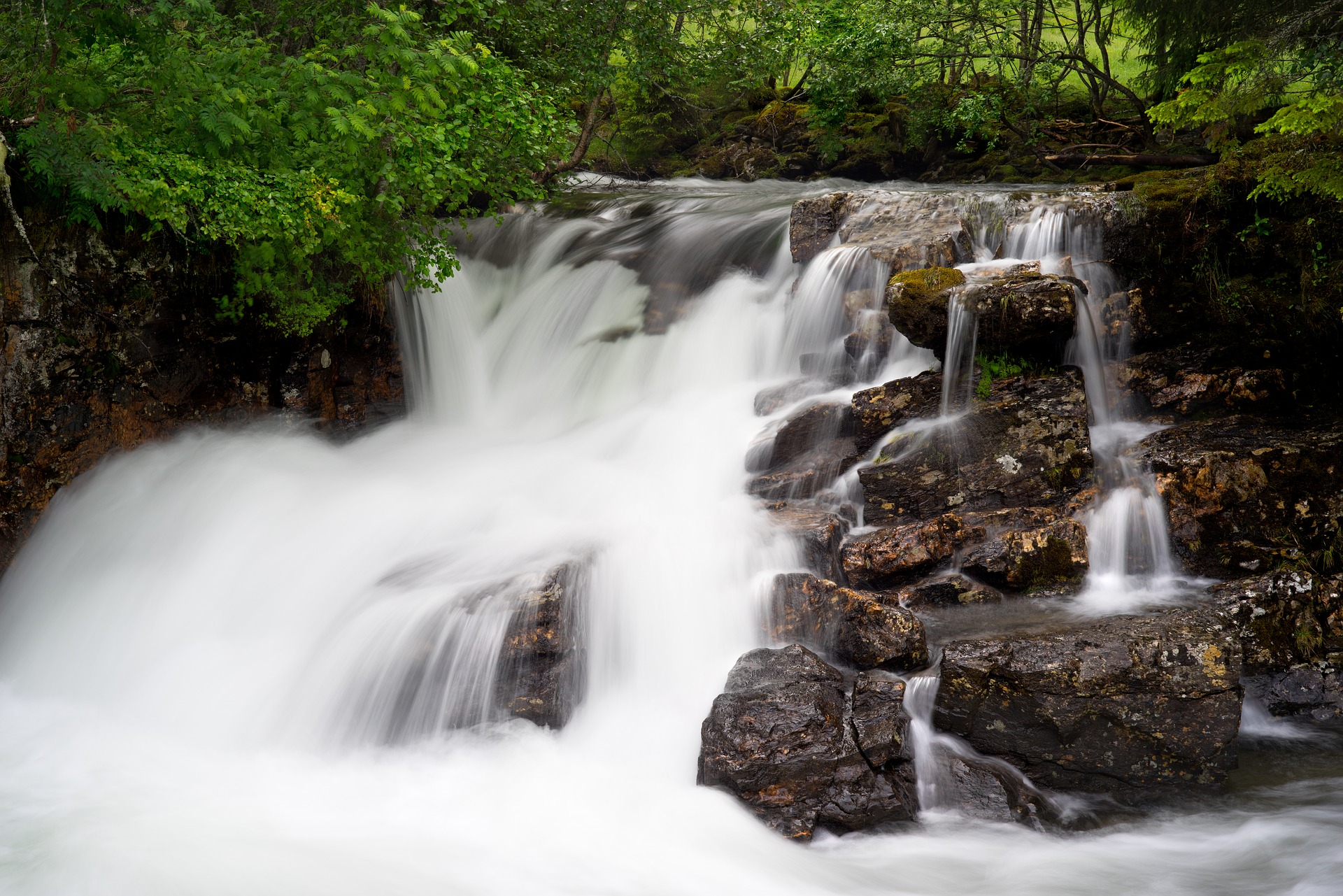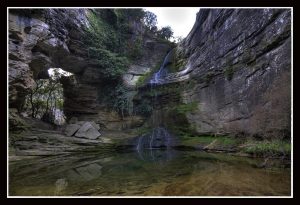

Outside of Barcelona, there are several beautiful natural areas just waiting to be visited. More than just farms, there are also mountains, rivers, and valleys with some of Catalonia’s most majestic scenery, including waterfalls. Many of these waterfalls offer picturesque surroundings that allow visitors to relax and explore in a very special natural setting. Here are some of the best waterfalls near Barcelona and how to reach them.
Related article: Barcelona’s water parks
Table of Contents


Photo by Pepe Manteca via Visualhunt
The stunning La Cascade de La Foradada is hidden outside the village of Cantonigrós, which sits north of Vic, about 90 minutes (87 km) from Barcelona off the B-522 and C-153 roads. To get there, find the narrow, rocky path that directs you down to the Foradada – a hike that takes visitors all the way to the bottom of the waterfall where the water flows into a pond. At certain times of day, the sun shines through the opening in the surrounding cliff, creating a sparkling pool of light in the water like a scene from a film. The water, which falls from a height of 15 meters, is surrounded by large stone walls and moss to give it a secluded, hidden feeling. It might not be the mightiest waterfall, but the surrounding beauty makes it a must-see for hikers who can get up close to the waterfall.
Photo by Enrique Freire via Visualhunt
About 90 meters high, the Salto del Sallent is one of the most dramatic waterfalls in Catalonia thanks to its picturesque path over the entire face of the gorge. From the end of the Fermín Arrudi trail, hikers will pass by two hermitages, Santa Magdalena and Sant Joan de Fàbregues. The trail is over 1 km long, following the Aguas Limpias river valley before reaching the bottom of this impressive sight that emerges from the forest above.
Visitors can reach Salto del Sallent via car from Barcelona, a 2-hour drive on the C-17 and BV-5208, to the village of Rupit, about 98 km from Barcelona. The best time to visit the waterfall is in the autumn or spring when the rain comes and builds upon the flow, making it fall harder, especially upon the boulder that sticks out halfway between the top and ground.
Photo by luciapita via Visualhunt
The Llobregat “dark” river is the second largest river in Catalonia, flowing all the way to the delta which is now covered by the Barcelona-El Prat airport. The start of the river comes from the majestic Fuentes del Llobregat waterfall in the village Castellar de n’Hug. It’s a short and easy walk to reach the waterfall, downhill on a paved path with stairs to the mountain where the waterfall forms the Llobregat. Its surroundings are spectacular, full of shade and natural beauty with the rapidly flowing water hitting the limestones below. The waterfall is a two-hour drive from Barcelona (or 3-hour train ride and walk) to Castellar de n’Hug, which sits on the mountainside of Puigllançada where visitors can find hotels and restaurants nearby.
Photo by Albert T M via Visualhunt
This waterfall has a mystical past- According to legend, it was the home of those who practiced witchcraft and was the source of many mythical creatures. While the stories date back many years, Gorg de la Malatosca still feels magical with its stunning scenery, forest surroundings, and small pool. Visitors can walk along the route known the Way of Iron and Coal, an old railway path outside the town of Sant Joan de Les Abadesses to reach the remarkable waterfall about 200 hundred meters down. To get there from Barcelona, travel about 120km on the C-17 and N-260.
Related article: Water Sports in Barcelona
There are plenty of natural parks and waterfalls set in stunning locations outside of the city. Despite the drive and hike to reach them, the trip is well worth it for those who want to explore nature at its finest and discover more of what Catalonia has to offer.
Looking for an apartment in the city? ShBarcelona can help you find the perfect one.
Do you enjoy strolling among trees and plants, away from the hustle and bustle of…
If you are planning to move to Barcelona for a few months or permanently, one…
ShBarcelona establishes itself as the leading agency within the Apialia Eixample Group, reaffirming its position…
Are you going to visit Barcelona this 2025? The vibrant Catalan capital once again becomes…
In long-term rentals, a common issue is poor boiler maintenance, which can lead to unexpected…
When searching for housing in Barcelona, terms like "ground floor," "mezzanine," and "main floor" can…